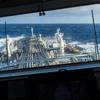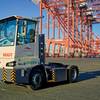The single market is one of the most celebrated successes of the EU. It is a central element of the EU growth agenda. It is, however, clear that the single market remains incomplete and dysfunctional in some sectors. This is particularly true for shipping.
Shipping remains disadvantaged compared to other transport modes. In many cases, goods transported by ships between EU ports lose Union status. This entails a heavy administrative burden, involving several authorities and intermediate parties.
Besides these numerous cargo-related reporting procedures and requirements, there are also a large number of vessel related reporting procedures and requirements to be fulfilled. These are not only complex and repetitive, but even worse, they are completely unharmonised throughout the EU. While the Reporting Formalities Directive aimed to simplify and harmonise the reporting, it unfortunately resulted in the opposite outcome. Today seafarers and company staff are facing an even higher administrative workload, resulting in additional stress for seafarers, decrease in job satisfaction and productivity losses.
EU shipowners are pleased to see the European Commission is now making real progress on the revision of the Reporting Formalities Directive and a “European Maritime Single Window environment”. In its impact assessment the European Commission is analysing whether it should not only harmonise and simplify reporting of the vessel related reporting obligations, but also streamline the customs reporting.
Martin Dorsman, Secretary General of European Community Shipowners’ Associations (ECSA), said: “ECSA fully supports this revision and calls for an ambitious project. It goes without saying that we want the customs reporting to be part of it as well. Only in this way shipping can finally enjoy the single market. An ambitious European Maritime Single Window environment should do away with all this unnecessary administrative workload which is now a heavy and unnecessary burden on the seafarers and company staff.”
“European shipowners believe that the European Maritime Single Window environment can only be a success if all parties, especially all authorities at national, regional and port level, are fully committed to making a success out of this. Their information requirements, strictly limited to data where there is “a need to know”, must all be covered in the one, single EU model. There should be no room nor need, for any party to ask anything beyond what is in the one, single model or interface. All relevant authorities and competent bodies at national and EU level must guarantee acceptance of data from the European Maritime Single Window environment,” he concluded.













